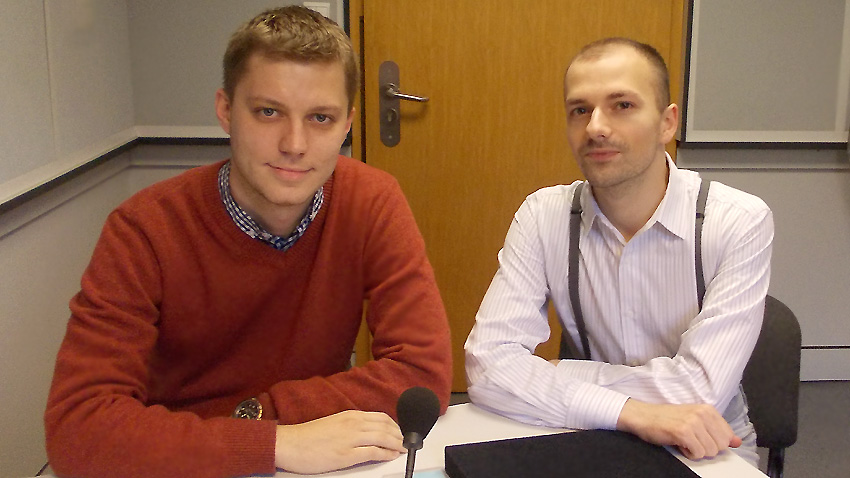In the period from 1 July to 31 December 2018, Bulgaria will, for the first time, take over the rotating Presidency of the Council of the EU. This may prove to be a turning point in terms of the way the country is regarded on the old continent, as well as an incentive for change at a national level.
A conference entitled “Challenges and opportunities facing the Bulgarian Presidency of the EU in 2018” will take place in Sofia on November 13, with the participation of university lecturers, experts, officials from EU embassies. The event is organized by an ambitious team from the blEUprint NGO – young people who have graduated prestigious European universities but have opted to work in Bulgaria.
In 2018 we shall be able to demonstrate that the country has the political, administrative and leadership potential to preside over the EU over six months and regain some of the trust lost, the people from blEUprint say. The rotating presidency also means constant cooperation among three countries – the country that held the Presidency previously, the one that holds it now and the one that will be the next to hold it. This means that politically, Bulgaria must be a stable and reliable partner to Great Britain and Estonia. A well organized and functioning national administration is a must for each member state that takes over the helm of the Union. According to the blEUprint team, the presidency is a good time to discuss reforms in the state administration.

A professional analysis of the previous presidencies is one more thing that forms the basis of sound groundwork for a successful term at the head of the EU. “Bulgaria can draw helpful experience from Poland’s Presidency in the period from July to December 2011,” says Velislav Ivanov from blEUprint:
“In a difficult political situation domestically, Poland managed to put through legislative initiatives at a European level and achieve considerable results with regard to economic stability and growth (such as the so-called Six-Pack Agreement),” he says. “In terms of the EU’s policy of enlargement – the finalization of Croatia’s accession agreement. Consequently, the Polish Presidency was given very high praise and in many ways can well serve as a model for Bulgaria.”
“In 2010 Belgium was plunged into one of a series of political crises.” Dimitar Lilkov from blEUprint says. “Throughout the whole 6 months, the Presidency was in the hands of a caretaker cabinet but again it was assessed as highly successful: an example of how despite major difficulties domestically, the political elite of a given country can leave behind all differences and attain a consensus in the name of a higher objective.”
Bulgaria will have the outstanding opportunity of bringing its national priorities in line with pan-European priorities.
“Europe’s energy independence is now on the agenda,” Dimitar Lilkov says. “Bulgaria, along with the Baltic republics and Slovenia are the countries hit hardest by Russian gas deliveries. If a functioning energy union were to be set up in Europe, Bulgaria would stand to gain a great deal and its role as leader in this sphere in 2018 could be an exceptional opportunity.”
“Another priority Bulgaria could set the agenda by is migration policy.” says Velislav Ivanov. “At the moment Italy is in the chair of the EU’s Presidency and migration is top priority. Countries like Bulgaria, Italy, Cyprus and Greece are currently bearing the brunt of the migration stream from Africa and the Middle East. The now existing single European framework for tackling this problem is not working and by the end of the decade, there is a real chance of developing a system of solidarity for accepting and redirecting refugees to all EU members.”
Velislav and Dimitar agree that the Western Balkans are a top priority. The Council Presidency affords Bulgaria an opportunity to be active in terms of foreign policy and the enlargement process. This country has so far failed to meet Brussels’ expectations of developing into a more high-profile and constructive player in the Balkans. Even though Jean-Claude Juncker recently declared a five-year moratorium on enlargement, Bulgaria could still promote the process of integration of the Western Balkans more actively – something that is in the country’s interest and would boost its prestige.
English: Milena Daynova
On this day 35 years ago, the authoritarian regime of communist dictator Todor Zhivkov collapsed. To mark the anniversary, the BGNES news agency carried out a survey of monuments to totalitarianism. The agency checked whether the monuments of the..
Residents and guests of the village of Kolena, Stara Zagora Municipality, gather for the Young Wine Festival. The event was celebrated for the first time in 2017, and a few years later the local teacher and winemaker Martin Slavov gave the..
The tallest Ferris wheel in Bulgaria will rise above Pleven , announced regional governor Nikolay Abrashev. It will be built in a multifunctional complex near the Kaylaka Park. "The project envisages the construction of a Ferris wheel with a..
Who said Bulgarians were grumpy pessimists? Take a stroll through Sofia's Christmas bazaars and meet the cheerful crowd. The festive decorations, music,..

+359 2 9336 661
